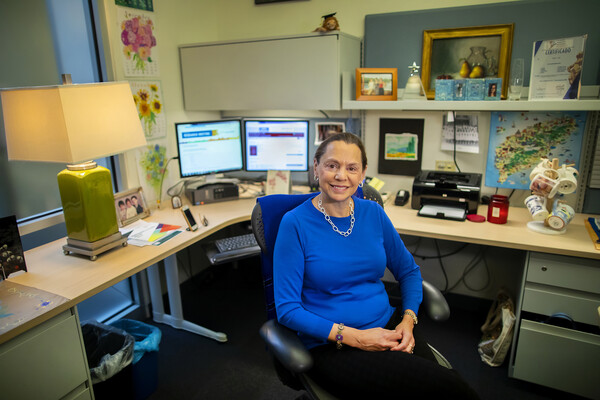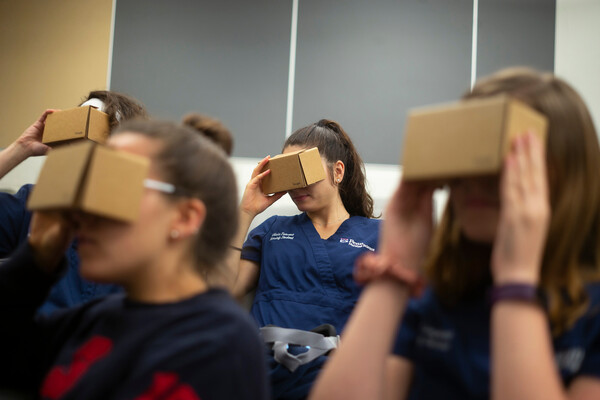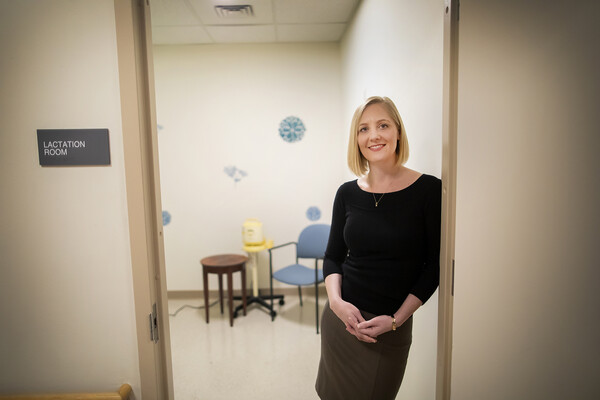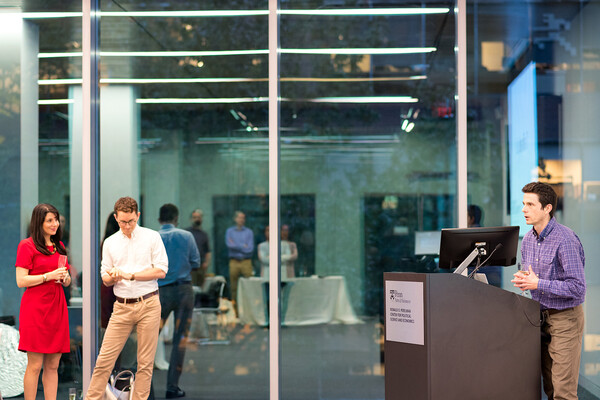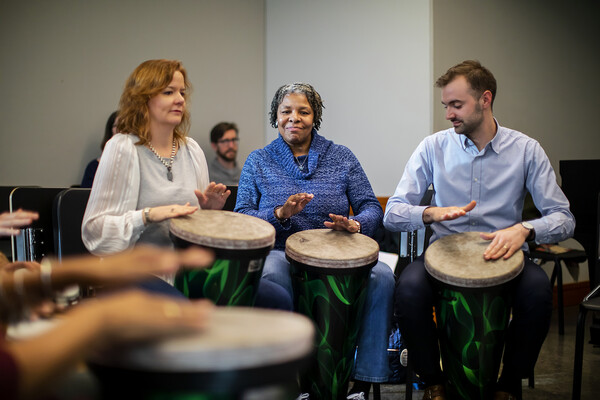
Mary Javian, chair of career studies at the Curtis Institute, Tempy Small, a program participant, and Adam Pangburn, coordinator of community performance at Curtis, participated in a drum circle to close out the final “Creative Expression through Music” session. Nick DiBerardino (not pictured) lead the classes, which were coordinated by Penn graduate students Sarah Bujno and Matt Volpe (in the background).

